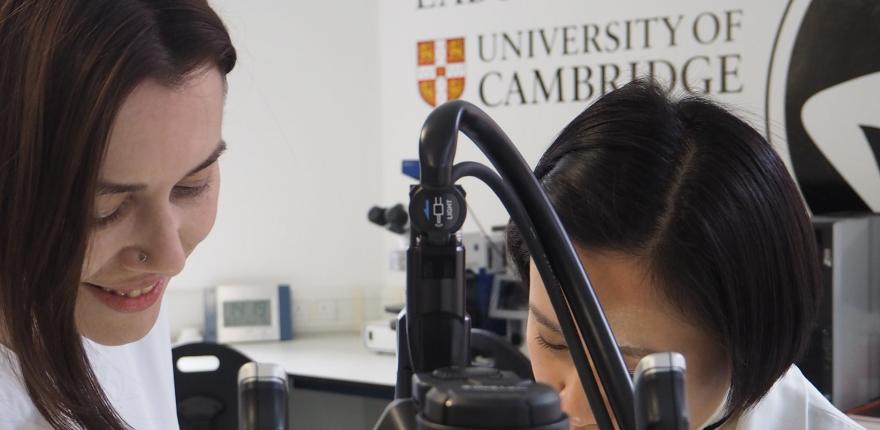Course length
10 months, full-time
Assessment
4+ modules with 4-6 assessments
Graduate Research Skills
Dissertation of up to 15,000 words
Department of Archaeology

How can we reconstruct ancient diets using isotopes? What can scientific analysis of materials such as pottery or metals tell us? How can we use genetics to help us better understand ancient and modern societies?
The MPhil in Archaeological Science consists of lectures and seminars, as well as laboratory sessions giving hands-on experience as you develop areas of specialisation. Group sizes are generally small, allowing for higher student participation.
Cambridge’s state-of-the-art laboratory facilities in the Archaeology Department, as well as collaborations across other Departments, mean students are offered experience in all relevant techniques necessary for training or research.
The course has a vast scope lending itself to interdisciplinary engagement. You will have the opportunity to learn several theories and methodologies while using the latest technology across the fields of:
With the support of Cambridge’s world-class expertise, facilities, and the latest scientific methods at their disposal, you are trained in research skills to carry out your own independent projects.
This MPhil programme offers you the opportunity to acquire experience on an extensive range of themes and analytical methods. Because students get experience in more than one method, connections across fields (for example, between environmental archaeology and material cultures studies) are promoted.
Some cross-cutting themes linking the different analytical approaches include:
These themes can be explored in a variety of ways, such as:
In this 10-month programme, you are able to design your own curriculum according to your interests. Modules in archaeological science can be combined with modules on particular theories, periods, or regions.
Two term-long core modules provide a general foundation, as well as training in the applications and practice of the established techniques in archaeological science, using examples from varied materials, methods, regions, periods and problems:
You then choose at least two term-long archaeological science modules from a rotating list that may include:
You also have the possibility of choosing modules in the archaeology of a specific area, other methodologies, or archaeological concepts. Students are also required to take G01 Graduate Research Skills.
The Graduate Research Skills module gives all students on an archaeology MPhil a grounding in research and prepares them for putting together in-depth pieces of work around a central question or discussion. It involves participating in seminars on topics such as planning fieldwork, research ethics, writing and illustrating research, and presenting your work. For this module, you will prepare a short research proposal and present it to the group.
The dissertation project is often formed from an extended application of one of the above techniques to address an important issue in archaeology. It is an opportunity to independently research and formulate a piece of original archaeological research. Applicants for this MPhil generally come from archaeology, science, or any other related discipline, and are willing to learn new things in unique ways, apply their critical skills, and share their knowledge as it expands. We actively encourage diversity, and tailor our teaching to challenge students, enabling them to build on their strengths.
The programme is an excellent foundation for further postgraduate study (for instance, PhD work using the methodological and conceptual skills developed in it), as well as providing skills in critical thinking, collaborative working, multimedia communication, numeracy aptitude, and the use of advanced analytical instruments.
Dr Agnese Benzonelli is the co-ordinator for this MPhil option. Please get in touch for further information.